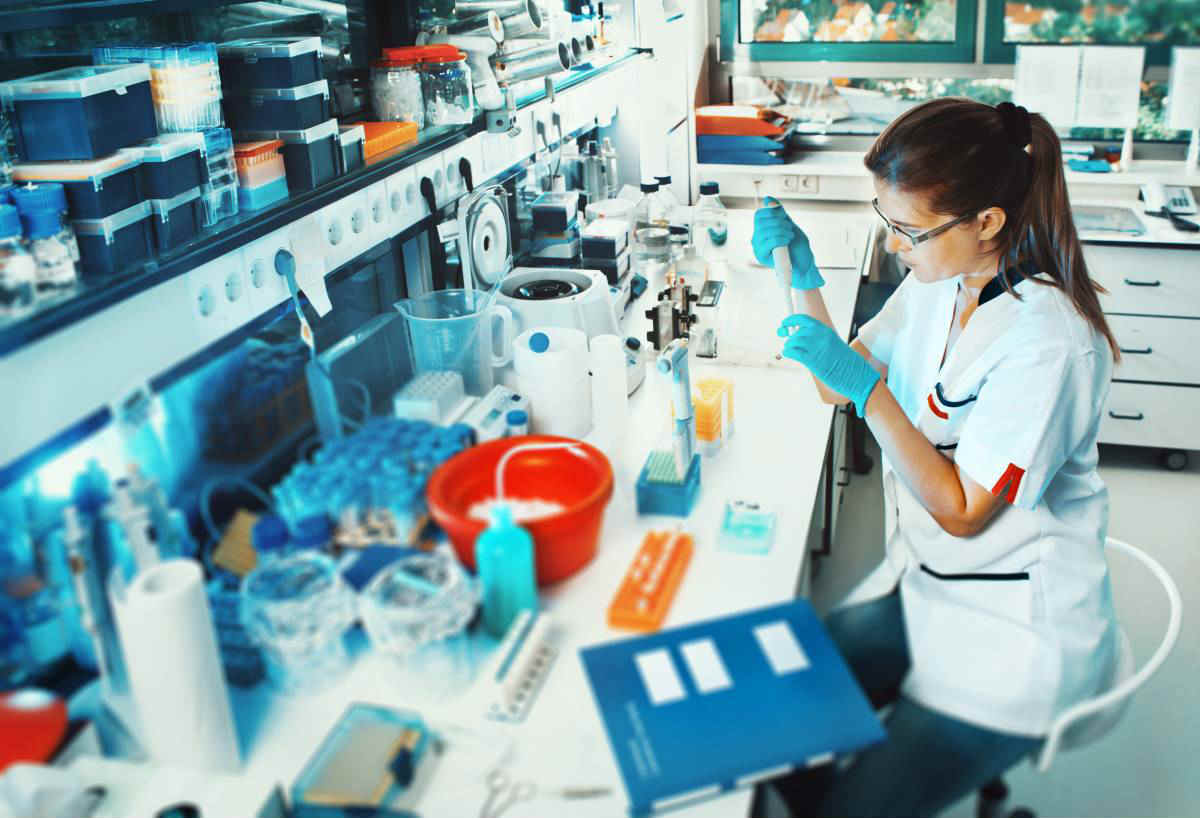It is important that lab workers understand the risks they face due to the nature of their work.

When we think of laboratories, we often visualize clean white spaces with lots of scientific equipment, scientists and workers in white lab coats, handling a variety of chemicals, testing products and conducting experiments. All kinds of laboratories, whether it is a biological laboratory, a chemical laboratory, a lab in a pharmaceutical company, a biotech firm, or a medical laboratory, can prove to be risky work environments with a potential to cause a number of work-related injuries ranging from minor to severe and even fatal.
In this article we will discuss the risks faced by lab workers in the U.S.
Hazards in the Lab
Laboratory employees work with a number of equipment and chemicals that could be potentially hazardous. The following are some examples of potential hazards that lab workers face.
- Non-adherence to safety protocols – Safety protocols ensure protection from work-related injuries in the lab. There are times when an employee does to not follow correct safety protocols, or is told by a superior to skip safety measures. This can result in serious work related injuries.
- Not using protective gear – Lab materials including chemicals, solvents, noxious gases, poisonous animals, etc. can pose a danger to lab workers. Therefore it is essential for lab worker to ensure that they use all the prescribed safety equipment like protective eye wear, gloves, respirators, lab coats, etc. on a regular basis. Failure to use proper protective gear at all times could lead to accidents.
- Repetitive work injuries – These types of injuries develop over time due to the nature of a lab workers job and poor ergonomics. Some of the common symptoms of a repetitive stress injury include pinched nerves, inflamed tendons, restricted range of motion, and a decrease of blood flow to the areas that are affected.
- Danger from broken glass – All labs use glass equipment like vials, beakers, containers, test tubes, etc. These containers and equipment can be repeatedly used after sterilization. A common lab hazard that workers face is broken glass. Not only can the shards of glass cut or penetrate the skin of the workers, but can also expose them to chemicals, acids, contaminated blood, toxic substances, etc.
- Fire or explosion – Pressure canisters storing gases, or chemicals used in labs can react with each other and can cause fires or explosions resulting in burn injuries. Moreover these fires could spread to other electrical equipment causing electrical fires that are highly dangerous.
- Biological hazards – Lab workers who handle biological substances can also be exposed to dangerous pathogens, infected blood, poisonous organisms, etc. These hazards can cause diseases, especially if the infections are not properly contained.
- Sharp objects – Sharp tools are used in all types of laboratories. Mishandling sharp objects could lead to cuts or puncture wounds. They could also lead to contamination and spread infections.
It is essential that lab workers are aware of the dangers that surround them at the work space. Moreover, they should use proper protective gear at all times and adhere to safety guidelines. Most importantly, employers should ensure that they are provided adequate training for the job beforehand.
Contact a St. Louis Work Injury Lawyer
For more than 30 years, the Law Office of James M. Hoffmann has been helping injured workers in the St. Louis area get the workers compensation benefits they need and deserve.
If you are a laboratory worker and have suffered a work-related injury, contact our law firm today by calling (314) 361-4300 or by filling out our online contact form. When you hire our law firm for your case you get an attorney that truly understands all areas of workers compensation.
